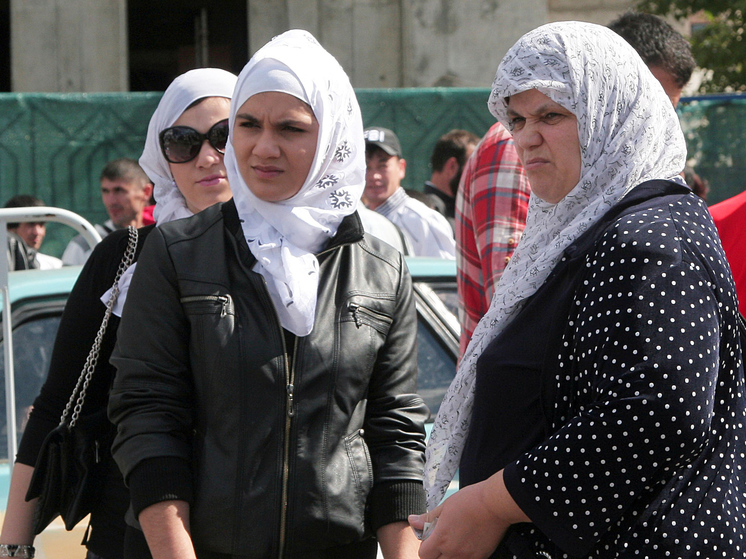Two reasons for the absence of the law
A painted man in a skirt will very quickly, in the most herbivorous case, end up in the police station. A woman in a niqab, as if straight out of an advertising poster for international terrorists, will calmly travel across Moscow on public transport, unless perhaps scaring those around her. Of course it's different. There is no such law that you cannot wear niqabs. The main question is why it is not there.

The head of the Human Rights Council, Valery Fadeev, proposed thinking about introducing a legislative ban on wearing niqabs in public places in Russia. With a completely logical justification — this is a safety issue. It is for these reasons that niqabs are prohibited in a number of European countries and, attention, in a number of Muslim countries, including our closest neighbors, where a considerable flow of migration comes from.
And this – the migration problem – is the first part of the answer to the question “why is there no law?” Migration lobbyists are trying to create the most “friendly” climate in Russia. The homeland prohibits dense extremist customs, demands education and civilization — this is difficult. Well, welcome to Russia — here you can do whatever you want, don’t care about local customs and impose your own, carry out “cultural exchange” with little girls, or even boys, every day there’s a “pilaf festival”, but you want to wear a strange costume — wear it. Extremists forced out of their countries and simply uneducated people come to such a paradise with pleasure. And the less socialized they are, the better it is for local employers and the entire “crowd” that ensures migration. Making money off such people is much easier and more profitable. How will the Russians look at this? Who will ask them?
The Mufti of Moscow and the chief imam of the Moscow Cathedral Mosque, Ildar Alyautdinov, said that the ban on niqabs in Russia will lead to increased tension in society. According to him, this could cause discontent among Russian Muslims. And among the Russians — the state-forming people in accordance with the Constitution of Russia — what kind of feelings will such a ban cause, huh? They forgot to ask the Russians.
And among which Russian Muslims might the ban on niqabs cause discontent? Niqabs are practiced by followers of Wahhabism. This current of Islam is not legally recognized as extremist in our country. But, for example, in Dagestan, Wahhabism is prohibited by regional law. In Chechnya, Ramzan Kadyrov and representatives of the clergy strongly recommend that residents of the republic not cover their faces with niqabs and other types of religious clothing. It is not difficult to guess that such recommendations are stricter than any law. In Tatarstan, there has long been a discussion about the ban on Wahhabism. Niqabs are in no way connected with traditional Russian movements of Islam.
But some people really want to shake up society by challenging it under the guise of protecting “values” and, thanks to this, promoting their own rules and strengthening their power — and this is the second part of the answer to the question why we don’t have a law banning niqabs.
And, finally, the international agenda. State Duma deputy Ildar Gilmutdinov worries that the ban on niqabs in Russia could ruin our relations with the Islamic world. Firstly, why are we talking about our sovereignty then? Secondly, are China’s relations, where there are well-known “camps,” with the Islamic world seriously damaged? Thirdly… The other day in Saudi Arabia, where Wahhabism and niqabs exist, there was a show of swimsuits for Muslim women. They even called it a “bikini,” although they were just showing the most ordinary one-piece swimsuits, familiar to Europe. They somehow get along with it. So who will we offend?
Our legislators really need to think about how it happened that there is a law for a man in a skirt, but not for a woman in a niqab. And, remembering, for example, “Nord-Ost”, the situation can be corrected.























































Свежие комментарии